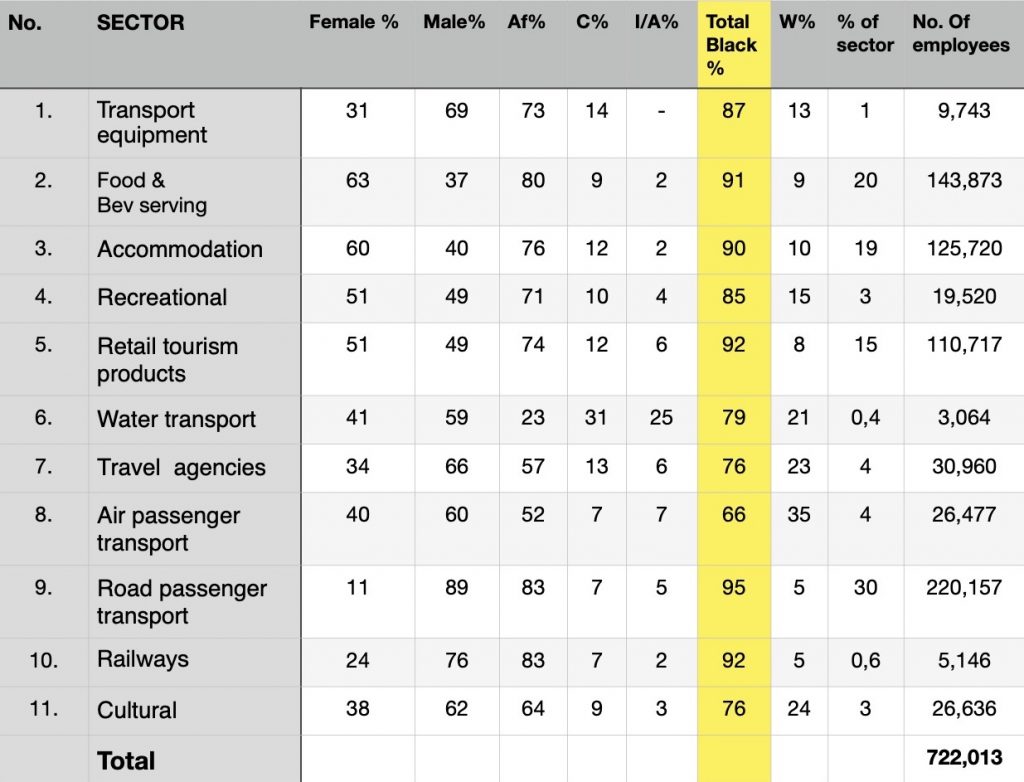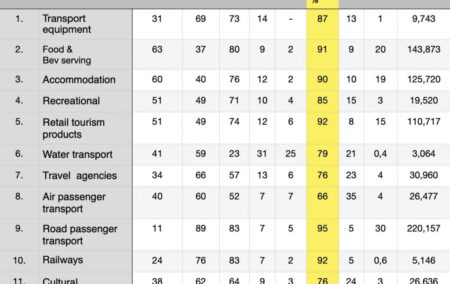The IRR has always fought racism, including that which seeks to remove the freedom of any person to pursue the business or trade of their choice.
The Constitution recognises the freedom to trade subject to the trade, occupation or profession being regulated by law.
The right to carry on business has also been subjected to laws and regulations which seek to limit that freedom through black economic empowerment, affirmative action and employment equity.
The IRR has been critical of the inexorable expansion of race-based social engineering, which benefits few but disadvantages many. We have been proponents of Economic Empowerment for the Disadvantaged which is based on actual disadvantage not skin colour.
One of the few industries that can absorb and train semi-skilled and unskilled workers is tourism. It is a sector that has a wide range of size of businesses, from airlines to family-owned Airbnbs.
Travel and tourism’s direct contribution to SA’s GDP was R136.1 billion in 2017, according to the World Travel and Tourism Council (WTTC) Economic Impact Report.
The WTTC report further states that the tourism sector’s total contribution to SA’s GDP last year was R412.5 billion, or 8,9% of the country’s overall GDP.
As at the end of 2018, one in every 22 employees were in the tourism industry and the industry employed 722 013 people.
Breakdown of employees
Below is a table of the 11 sectors within the industry and the breakdown of employees by gender and race:

Being unable to keep their statist little hands off a very diverse and individualistic industry, the department of tourism established the Tourism Transformation Fund (Fund) in January 2021. The Fund was a response to the effect of the global Covid-19 pandemic in decimating the industry. The Fund provided once-off capped grant assistance to Small Micro and Medium Sized Enterprises (SMMEs).
Rob Rose, editor of the Financial Mail (FM), points out in an article that of the 49 000 small tourism businesses in operation, less than 10% received anything. ‘Need’ should have been, but was not, the minister’s first criterion – it was rather levels of black ownership.
‘Our vision’
According to the minister the awarding of grants was ‘guided by’ the industry B-BBEE Codes and ‘the …[Fund] is administered in line with the objectives of Economic Transformation, and our vision to ensure sustainable and inclusive tourism development.’
‘The TRF1. FUND TERMS AND PRIORITY AREAS provided that
- At least 70% of beneficiaries shall be (our emphasis) businesses that are Black owned, 50% women owned, 30% youth owned, 4% of beneficiaries shall be businesses that have met a target of at least 2% employment of persons with disabilities.’
In a society that has more people unemployed than employed, ownership on the basis of colour and gender as the criteria for assistance, is bizarre.
According to the tourism department’s Transformation Strategy for the Tourism Sector of September 2018, black ownership in the industry is about 30% and of black women, 15%. I could find no figures for ‘youth ownership’. ‘Youth ownership’, by its very nature, is going to be tiny: the youth have to be employed and learn first before they can run a business.
South Africa doesn’t have the luxury of obsessing over ownership rather than employment. Rose says that the real issue that the minister ignored was that ‘the workforce is 70% dominated by black women — many of whom, sans relief, would have lost their jobs.’
‘Whatever colours the owners might be’
Tsogo Sun CEO Marcel van Aulock said: ‘You can have your view on whatever colour the owners might be, but I can guarantee you that 95% of the staff working for those tourism companies are black.’
A businessman, who ran a fleet of 15 Ubers, told the FM he was rejected by the relief fund because the company wasn’t black-owned. ‘I had to close down the company to pay debt. And all my drivers were black, and either semi-skilled or unskilled.’
Last week, in a victory for decency and common sense, Afriforum and Solidariteit won their challenge to the minister’s position. The Supreme Court of Appeals found the minister’s BEE-first relief policy to be ‘unlawful’.
The minister had argued that ‘(she) was obliged by statute to include in her direction [broad-based black economic empowerment] criteria for eligibility to financial assistance.’ The court found that ‘[Kubayi-Ngubane] believed erroneously that she was bound by … the [empowerment] Act to apply the Tourism Sector Code in her direction. Her error was material because it distorted her discretion in the sense that it caused her to fail to apply her mind properly to the criteria that should have been used for eligibility.’
It’s a very important judgment for the future.
A senior Reserve Bank employee described to Rose the problem as being one of ‘agenda creep’. Rose wrote: ‘In his estimation, it all starts off with a policy designed to do one thing, before clueless-but-eager politicians infuse all their pet agendas into it. Before you know it, that policy has morphed into such an overweight flabby beast, it can’t move at all.’
That’s too kind.
If you like what you have just read, support the Daily Friend

